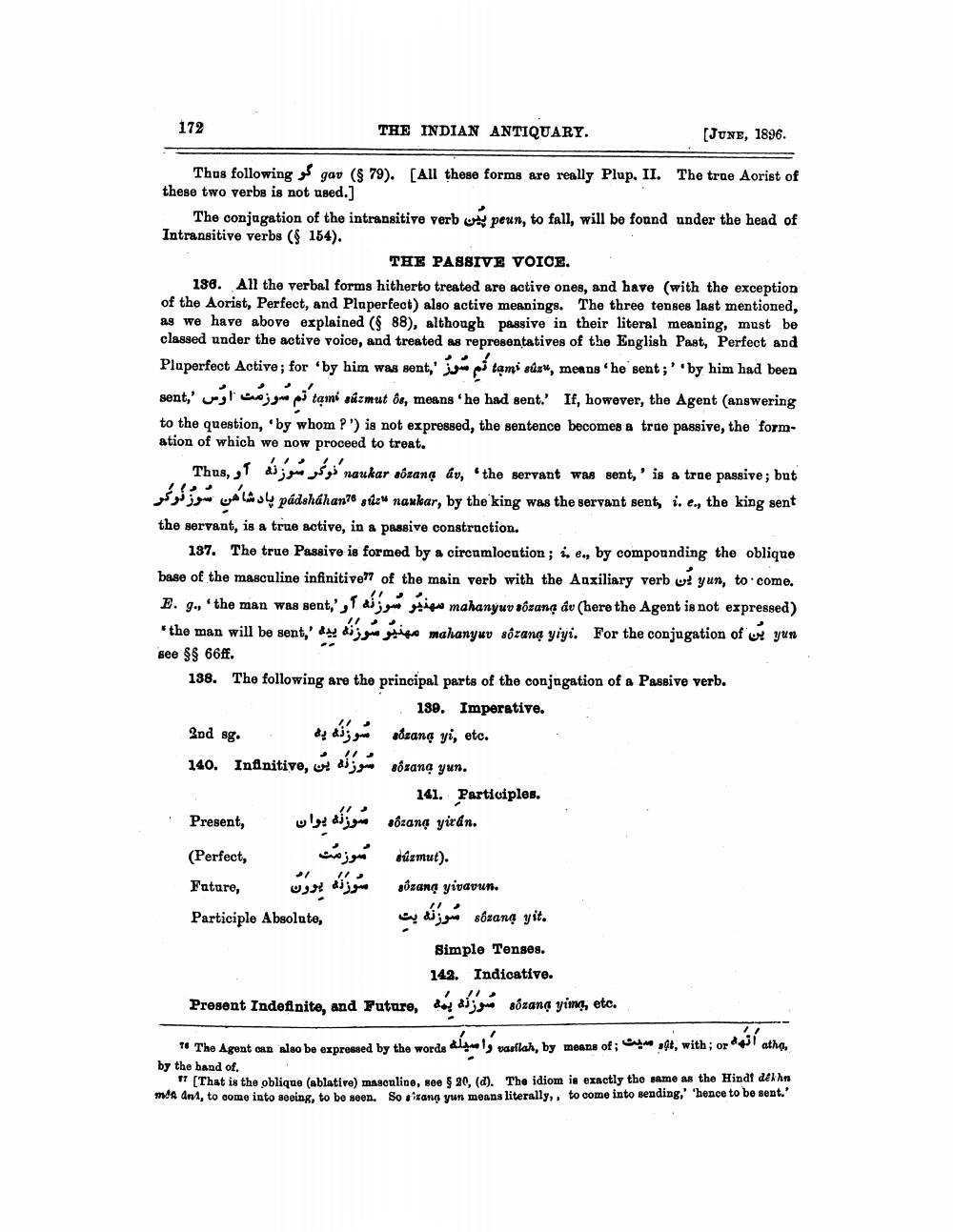________________
172
THE INDIAN ANTIQUARY.
[JUNE, 1896.
Thos following 35 gav (79). [All these forms are really Plup. II. The true Aorist of these two verbs is not used.]
The conjugation of the intransitive verb peun, to fall, will be found under the head of Intransitive verbs ($ 154).
THE PASSIVE VOICE. 136. All the verbal forms hitherto treated are active ones, and have (with the exception of the Aorist, Perfect, and Plaperfect) also active meanings. The three tenses last mentioned, as we have above explained ($ 88), although passive in their literal meaning, must be classed under the active voice, and treated as representatives of the English Past, Perfect and Pluperfect Active; for "by him was sent,' is 3 tami sús, means he sent;' by him had been sent,' woglej yo pitamí sázmut ôs, means he had sent.' If, however, the Agent (answering to the question, by whom P') is not expressed, the sentence becomes a true passive, the formation of which we now proceed to treat.
Thus, , 1 ; su sg narkar sózaną kv, 'the servant was sent,' is a true passive ; but of the year walay pádshāhan7e siz* naukar, by the king was the servant sent, i. e., the king sent the servant, is a true active, in a passive construction.
187. The true Passive is formed by a circumlocation ; 4. e. by compounding the oblique base of the masculine infinitive of the main verb with the Auxiliary verb ul yun, to come. E. g., "the man was sent,',T as good grimu mahanyuv sôrang dv (hero the Agent is not expressed) "the man will be sent,' diy young girl por mahanywv sôzana yiyi. For the conjugation of ww yun see $$ 66ff. 138. The following are the principal parts of the conjugation of a Passive verb.
189. Imperative. 2nd sg. dj go szaną yi, etc. 140. Infinitive, we also sózaną yun.
141. Participles. Present, ': dig sốzaną yirán. (Perfect, eiga süzmut). Fatare, user disco sózaną yivavun. Participle Absolute,
Simple Tenses.
142. Indicative. Presont Indefinite, and Future, dos agua sôzana ying, etc.
** The Agent aun also be expressed by the words that is varilah, by means of; togt, with ; or +31 atha, by the band of.
"[That is the oblique (ablative) masculine, see $20, (d). The idiom is exactly the same as the Hindt den mon ami, to como into sooing, to be soon. So eixang yun means literally,. to come into sending, hence to be sent.'
.s6zana yit وزنه يت




